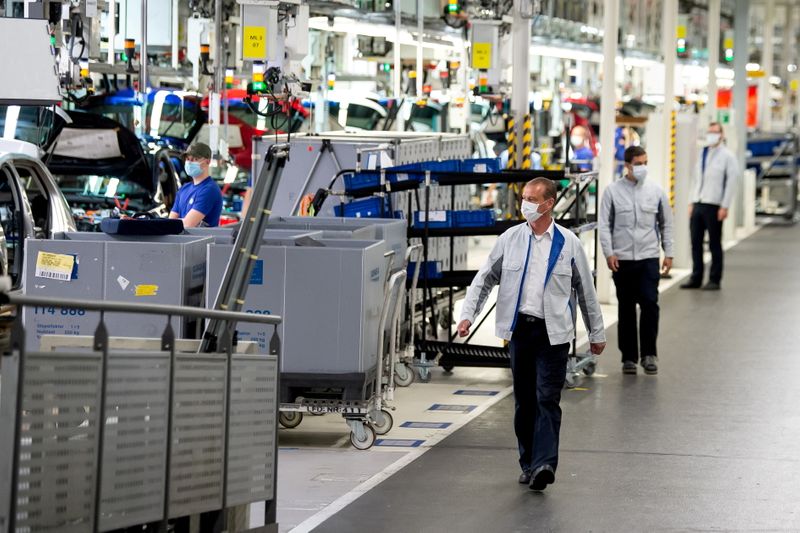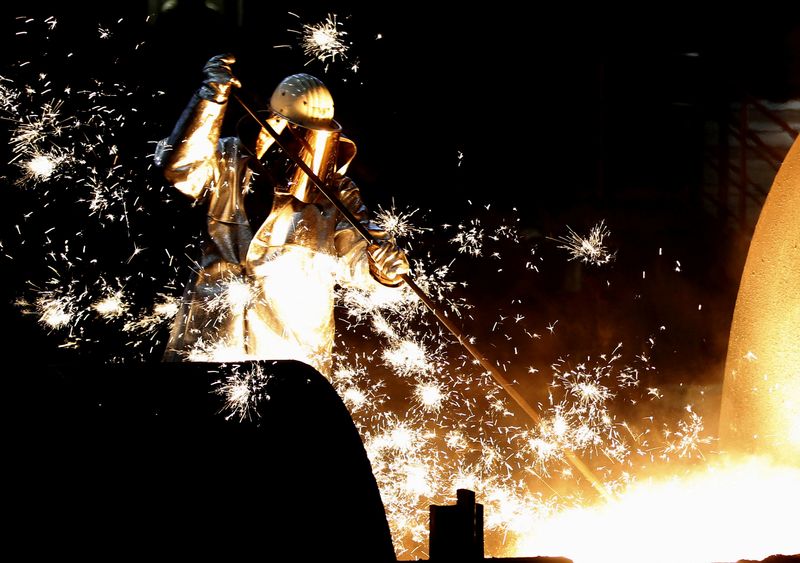
FILE PHOTO: Staff at the Volkswagen assembly line in Wolfsburg, Germany, April 27, 2020. Swen Pfoertner/Pool via REUTERS
November 4, 2021
BENGALURU (Reuters) – Euro zone business activity grew at its weakest pace in six months in October as supply chain bottlenecks and logistical issues related to the COVID-19 pandemic pushed input prices to rise at the fastest rate in over two decades, a survey showed.
Government restrictions are being lifted in the currency bloc but shortages of raw materials in the manufacturing sector are impacting growth and the pent-up demand unleashed across the services industry is waning.
IHS Markit’s Flash Composite Purchasing Managers’ Index (PMI), a good gauge of overall economic health, fell to a six-month low of 54.2 in October from 56.2 in September, just below an earlier 54.3 “RBflash” estimate.
“Euro zone growth has slowed sharply at the start of the fourth quarter, with manufacturing hamstrung by supply constraints and services losing momentum as the rebound from lockdowns fades,” said Chris Williamson, chief business economist at IHS Markit.
The services PMI index fell to a six-month low of 54.6 in October from 56.4, a notch lower than the preliminary estimate of 54.7 but still comfortably above the 50 mark separating growth from contraction.
Demand weakened though and the new business index dropped to 55.1 from 55.3.
While euro zone manufacturing activity remained strong last month it was curtailed by supply chain bottlenecks, a survey showed on Tuesday. [EUR/PMIM]
Those bottlenecks have caused the costs of raw materials to soar and the composite input prices index climbed to 73.2 from 70.9, by far the highest since the survey began in mid-1998.
“Ongoing supply shortages meanwhile suggest that high price pressures will persist into next year, but as yet there are no signs of persistent strong wage growth, which would be the bigger concern for the longer-term inflation outlook,” Williamson said.
(Reporting by Shrutee Sarkar; Editing by Catherine Evans)

